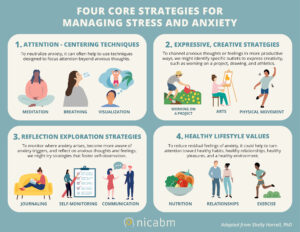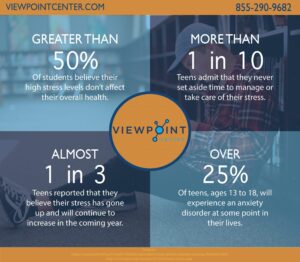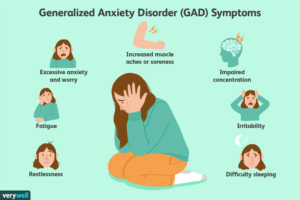Anxiety Essays and Research Papers Page 3
35 essay samples on this topic
Essay Examples
Essay topics
Overview
I Believe In Helping Those Who Need It
Anxiety
Childhood
This I Believe
Sitting uncomfortably in a plastic chair, with the strong smell of harvested coffee beans around me, tears well in my eyes. I’m just thirteen years old; I’m out of my comfort zone on a medical mission trip in Nicaragua, shadowing one of the physician assistants, when a girl seeming to be my age approaches and…
Relationship Between Breastfeeding Difficulties and Maternal Anxiety
Anxiety
Breastfeeding
Background Promoting optimum breastfeeding for infants and reducing maternal and childhood mortalities have remained a significant interest for the international community for decades. According to the World Health Organisation (WHO), it is recommended that a mother should initiate breastfeeding within the first hour after birth, exclusive breastfeeding for the first six months, and continued breastfeeding…
Anxiety Disorders and School
Anxiety
Anxiety Disorder
Teaching
Abstract Anxiety Disorders are an established issue. They can be triggered by lots of things: stress, loneliness, and sadness. Anxiety in any form makes life hard, especially when anxiety affects people in a stressful environment, school. Balancing mental stability on top of school is a juggling act that not many can do. The majority research…
Relationships of Social Anxiety and Alcohol Dependence
Alcohol Abuse
Anxiety
Social Anxiety
Abstract In recent years many possible evolutionary explanations have been proposed for alcohol dependence. Many of these hypotheses have amassed varying degrees of support and evidence. After a brief consideration of several of these explanations this review will focus principally on the evolution of anxiety as a contributing factor to current day alcohol dependence. It…
Social Anxiety Disorder
Anxiety
Anxiety Disorder
Mental Illness
7 percent of the people in America have a fear of being observed and receiving judgement from others around them, whether at school, or at their job. They fear most or any form of social contact for the possibility of them being turned down and not accepted by others. This fear can be known as…
My Learning Experience From an Insecure Family
Anxiety
Educational Experience
Psychology
I grew up in a family that was never comfortable financially, in a large urban city in Australia, with divorced parents. This was the cause for many challenges I had to face in my education. As my parents continued to work on themselves and their relationship, I believe they overlooked their role in my educational…
Exploring My Writing Anxiety
Anxiety
Writing Experience
I find all aspects of writing increase my anxiety. I grit my teeth and bite my cheek whenever I must write. With all the writing that comes with being a college student, it’s a priority for me to be able to handle this task better. The factor that overwhelms me the most is the excessive…
A Personal War against My Demons at Night
Anxiety
Dream
Night
You ever had nights where you couldn’t sleep because your thoughts wouldn‘t let you? Have you ever gone days without eating because your depression told you that you didn‘t need to eat? You ever felt so alone and that no one can save you at all? The mastermind behind it all is my biggest enemy…
Affiliated With The Ivy League University
Anxiety
Ivy League
Everybody understands that life happens, or so I believe they do. There are times when life becomes extremely overwhelming and you find yourself needing the help of others. Ryland is at the point where he needs the help and understanding of others. Why does the physics teacher not help Ryland by tutoring him or allowing…
Social Anxiety Disorder – 2
Anxiety
Social Anxiety
Why this article? I choose this article because it is something I can relate to. I struggle with social anxiety. Not by choice but by the make up of who I am. Before selecting this topic, I battled with choosing this topic or not because I try to ignore my problem and shove it down…
Check a list of useful topics on Anxiety selected by experts
Personality, Mood and Anxiety Disorders
Social Status Anxiety
Attention Biases in Anxiety
Generalized Anxiety Disorder
Anxiety Disorders in Children and Adolescents
Cognitive Behavioural Family Therapy with Anxiety Disordered Children
Anxiety Disorders’ Impacts and Treatments
Communication Anxiety and Treatment Methods
Attention and Anxiety in Sports Performance
Social Anxiety Disorder, Risk Factors and Symptoms
Women Living With Anxiety
Math Anxiety, Its Factors and Interventions
What is the youngest age a person can be mentally ill?
When is a person a danger to themselves or others?
Why are so many artists mentally unstable?
How is color related to a mental state?
Anxiety as a Part of Our Life
Similarities and Differences Between Autism Spectrum Disorder and Social Anxiety Disorder
How are you feeling right now? Describe how you feel in writing.
Make a list of the compliments you’ve received from others.
Write a letter to yourself. Make it a love letter.
Is your anxiety trying to tell you something? What is it?
What values are important to you?
information
Anxiety is a negatively colored mood with feelings of anxiety, tension and fear. In moderate amounts, such emotions are useful: they help to mobilize strength and find a way out of extreme situations. But there must be a reason for anxiety, and it normally lasts a limited period.
If a person constantly experiences anxiety and restlessness for no reason, it may indicate the presence of a mental disorder. If there is no help, constant tension wears down the nervous system and the body as a whole, which leads to a breakdown of adaptation mechanisms and the development of chronic diseases.
If you notice that you cannot relax for a long time, you should think about visiting a specialist.
In pathological cases, the state of anxiety and restlessness for no reason is manifested by both mental and physical signs.
Mental symptoms:
- Constant feelings of fear and anxiety for no reason,
- poor concentration and attention span,
- sleep disturbances,
- emotional lability, irritability, tearfulness,
- Inability to relax and fully engage in daily activities or communication,
Physical symptoms:
- rapid breathing and heartbeat,
- headaches, abdominal and heart pain,
- increased sweating,
- eating disorders: increased appetite or loss of appetite,
- weakness,
- shivering, chills,
- stool abnormalities: rapid urge, constipation,
- shortness of breath,
- nausea,
- muscle cramps and pains.
Unreasonable anxiety and restlessness occasionally increase or subside. Exacerbations often accompany stress: conflicts, important events, illness. Normally, a person recovers quickly after the situation is resolved, but with a disorder, the negative emotions do not go away.
The intensity of anxiety varies from mild to severe. The extreme degree is panic. If the anxiety state is ignored for a long time without cause, panic attacks can join it. They occur unexpectedly and sometimes for no good reason, but after this episode, the person begins to avoid situations similar to the one in which it happened: public transportation, elevators, or just a crowd of people. This greatly reduces the quality of life and can lead to social withdrawal.
Causes of Unreasonable Anxiety and Anxiety Disorder
The occurrence of anxiety disorder is influenced by heredity. Certain brain structures and features of biological processes have been found to play an important role in the emergence of fear and anxiety. Personality traits, somatic health problems, lifestyle, and different types of addictions also play a role. Sometimes unreasonable anxiety and worry have no cause. Negative feelings usually have a trigger – an event or thought that triggers an anxious response. However, most people are not aware of their triggers, and believe that their emotions are groundless. In this case, only a specialist can help understand why anxiety arises for no reason.
There are a number of diseases, the symptoms of which are constant anxiety. With unreasonable fear and anxiety, the reasons may be the following:
Generalized anxiety disorder: constant nervousness and anxiety over little things that are usually visible to others and last for 6 months or more. Starts in adolescence and increases with age.
Obsessive-compulsive disorder: obsessive thoughts and fears that are accompanied by compulsive actions that bring no relief. There is an obsessive-compulsive neurosis – the person is indefatigably haunted by memories that replicate the traumatic situation.
Phobias: irrational fear of any, even mundane things. Accompanied by uncontrollable panic and physical manifestations.
Panic attack: excruciating and sudden panic attack, which is accompanied by fear of death and vivid somatic symptoms. The regular occurrence of panic attacks means the development of a panic disorder.
Post-traumatic stress disorder: occurs after a severe psychotraumatic situation and is accompanied by high levels of anxiety, avoidance and flashbacks.
These are the most common examples, but pathological anxiety can be a symptom of other disorders or a consequence of a failed struggle with stress. If you want to understand why anxiety arises for no reason, you should see a doctor. Without figuring out the underlying factor and working on it, it is impossible to restore health and mental equilibrium.
It’s hard to live under constant stress. If you are experiencing unreasonable anxiety and fear, the following list will tell you what to do:
- Talk to someone you trust. This could be a relative, a close friend, a therapist or a helpline worker. People are social creatures, so communication is good for relieving inner tension.
- Find a way to calm down quickly. You don’t always have someone close by with whom you can share. Therefore, it is important to find a suitable method to help you relax: breathing techniques, soothing music, aromatherapy, self-massage and others. If you can not find your own techniques, which quickly helps with anxiety without a reason what to do you will prompt a specialist.
- Add physical activity to your life. This is a natural and effective remedy for anxiety. Moderate sport relieves stress, lowers stress hormones and strengthens the nervous system. Take at least 30 minutes a day to exercise.
- Normalize your lifestyle. Get enough sleep, eat a nutritious diet, and give up unhealthy habits. This stabilizes physical performance and neurotransmitter levels, which helps maintain emotional balance.
- Start keeping a journal. Taking notes helps you identify patterns of anxiety exacerbations, understand the causes, and notice the early signs of their occurrence. Also, thanks to this, you will become more focused on positive events that you might not have noticed before.
Videos about Finance
- How to cope with anxiety?
2. Generalized anxiety disorder (GAD) – causes, symptoms & treatment
3. What is Anxiety?
Interesting infographics about Anxiety
- Four Strategies for managing stress and anxiety

2. Teenager anxiety

3. General Anxiety Disorder (GAD) Symptoms


